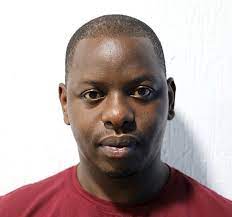

Last week, Rwanda presented, to potential partners, its Food Systems Legacy Programme (LP), an initiative that translates the Government of Rwanda’s Strategic Plan for Agricultural Transformation (PSTA-5) into a bankable investment programme.
ALSO READ: From simple crop to cash cow: How avocado became profitable
The legacy programme on food systems aims to provide the country with a more operational and bankable investment.
ALSO READ: Young entrepreneur finds a niche in avocado products
Avocado is among the key value chains targeted for resource mobilization, with a total investment of $143.5 million required. Here’s how the proposed $140 million investment would impact the avocado value chain in Rwanda.
Below are things to know that $140m investment would do in the avocado value chain.
Increasing production area to 5,000 hectares
According to Ildephonse Musafiri, the Minister of Agriculture and Animal Resources (MINAGRI), there is a need for an increase in domestic production area from 517 hectares to 4, 933 hectares which requires $99 million for the production of 71,116 tonnes.
Avocado varieties
Rwanda’s avocado farming industry is quite young, having started about 10 years ago.
Currently dominant export varieties are Hass and Fuerte which farmers are encouraged to grow in Rwanda.
ALSO READ: Can avocado become a key export for Rwanda?
A single hectare of avocado trees can yield up to 20 tons per year.
35,558 tonnes of avocado to be processed
There is also $12.5 million required to increase processing capacity for 50 per cent of produce, with 35,558 tonnes expected to be processed under the programme.
12,938 tonnes to be exported
The country also targets to increase national exports to meet regional demand from international buyers, with 12,938 tonnes expected to be exported.
An investment of $32 million is projected to this end.
ALSO READ: Inside Rwanda’s plan to make avocado a major export crop
Rwanda exported 2,230 tonnes of avocados which generated 4.7 million in revenues in 2022, according to figures from MINAGRI.
Average export price stands at $1.36/kg.
Rwanda targets to increase avocado exports by an average annual growth of 155 per cent within, from 2,000 in 2024 to 31,164 tonnes in 2028/29.
Export market expansion
Musafiri said Rwanda seeks to increase national exports to meet regional and global demand.
USA and EU (due to assumed health benefits) will remain the main importers by 2030 with 40 per cent and 31 per cent of global imports respectively.
ALSO READ: Kenya resumes avocado exports after 4-month suspension
Avocado is expected to become the most traded tropical fruit by 2030, reaching 3.9 million tonnes of exports, overtaking both pineapples and mangoes in quantity terms, as per the UN’s Food and Agriculture Organization (FAO), which indicates that the trend is in response to rapidly growing global demand for the commodity.
Currently Dubai is the main market with 99%. Other markets include Qatar, Saudi Arabia. Belgium continues to lead the EU market.
The Middle East market will continue to grow due to low freight price ($1/kg), flexibility on market standards requirements.
Rwanda projects average annual growth of 155.2% for avocado exports in 6 years.
What avocado smallholder farmers, exporters expect
Juliette Nyiranzeyimana, the representative of Juliette Serving Horticulture Limited, which grows fruits and vegetables in Nyamasheke District said they currently have over 5,000 avocado trees.
"The farmers need investment in avocado seedlings given that one grafted avocado seedling costs between Rwf2,000 and Rwf2,500 which many smallholders farmers who need to scale up can’t afford. The needed seedlings should be the avocado varieties needed on the international market,” she said.
She added there is also a need for post-harvest handling facilities and equipment as well as proper packaging.
"We need cold rooms to store the harvest and keep its quality before it is taken to the market by quality packaging,” she said.
She said that avocado growing requires organic fertilisers.
"There is a need for investment in organic farming,” she said.
She added that investing in avocado processing units are needed to add value to avocado and boost exports of avocado products.
"This will attract better prices for avocado farmers,” she added.
According to Christian Mugunga, an avocado exporter, the investment should start with farmers.
"Farmers need various skills to grow avocados and deliver on quality needed on the international market. Getting good varieties is not enough. We invest into training agronomists and have those specialised in avocado farming. There are different diseases and pests that attack avocados and investment in treatment with specific agriculture practices and agro-chemicals is needed,” he said.
He added that market linkage requires investment considering that there are middlemen and scammers in the avocado value chain and international market.
"We need a sustainable market for avocado,” he said.
He added that avocado export though sea routes should be looked at given that air transport is expensive.
"That is why although we are in harvesting season Kenya is competing because it uses sea routes to export avocados. Dubai takes over 80 per cent of our produce. There is Qatar among others,” he added.
Rwanda is set to continue its trial of avocado exports by sea freight after a successful initial shipment to Dubai.
Rwanda also mulls tapping into the European market for avocados via sea.


